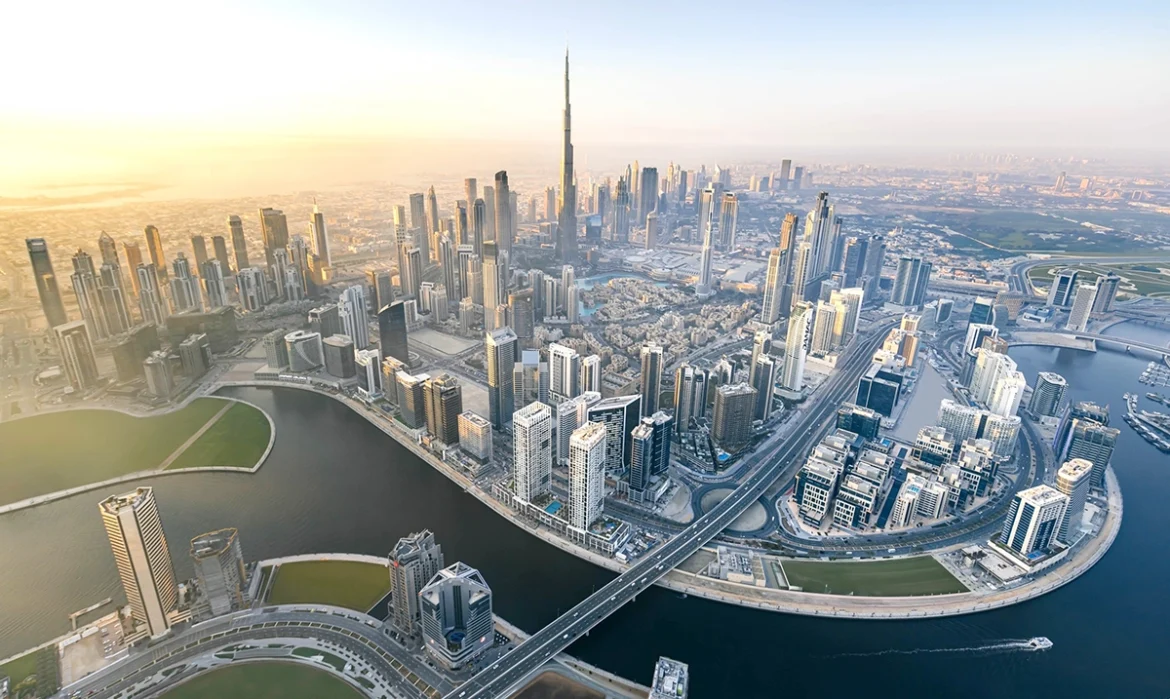Dubai’s real estate market is set to maintain its upward momentum in 2025, following an exceptional year in 2024, with residential prices soaring by 20% and rents increasing by 19%.
While there may be some stabilization in certain segments due to the increase in supply in late 2025, the overall market momentum remains strong.
The city’s focus on sustainable urban development, transportation infrastructure, and smart city projects under the Dubai 2040 Urban Master Plan is expected to further boost the attractiveness of the market to investors and residents.
The 2025 Dubai Real Estate Predictions Report, released by Deloitte, highlights a thriving real estate market across all sectors, continuing to attract both investors and residents, despite global uncertainties. The city’s reputation as a safe haven for property investment remains strong, backed by its strong economic expansion and a population increase of 5% over the past year.
Dubai’s residential market
The residential market in Dubai has seen remarkable growth, with average sales prices rising by 20% in 2024. Villas remain the most sought-after property type, leading in price increases, while rental rates surged by 19%. Popular areas like Dubailand, Meydan, and International City saw the most significant rental hikes, with some locations experiencing increases of up to 46%.
Transaction volumes have reached record highs, with 44% of sales taking place in the secondary market. The demand for affordable, family-friendly villas and townhouses continues to dominate, although the anticipated new housing supply in late 2025 may offer some relief and slow the pace of price growth.
Commercial real estate
Dubai’s office market also demonstrated resilience in 2024, with Grade A office rents rising by 17% year-on-year. The demand for premium office spaces, particularly in areas like the Dubai International Financial Centre (DIFC), remains strong, as multinational corporations continue to establish a presence in the city. Notably, the ICD Brookfield Tower in DIFC maintained an occupancy rate of over 95% throughout the year.
In the retail sector, Dubai continues to see strong growth in consumer spending, driven by both residents and tourists. Total retail sales are projected to increase by 6% between 2025 and 2027. The rise of e-commerce is reshaping retail experiences, but Dubai’s focus on creating community-based retail hubs, as part of the Dubai 2040 Urban Master Plan, is expected to keep physical retail thriving in the city.
Hospitality sector
Dubai’s hospitality sector experienced a boost in 2024, with a 9% increase in the number of overnight visitors, reaching a total of 18.7 million. As a result, hotel occupancy rates climbed to 78%, signalling the city’s ongoing status as a top luxury and business travel destination. Revenue Per Available Room (RevPAR) also saw a modest increase of 1%, driven by successful global tourism campaigns and the introduction of new hospitality brands.
Dubai continues to position itself as a leader in global tourism, attracting both leisure and business travellers.
Industrial real estate
The industrial real estate sector in Dubai remains strong, driven by the rise in demand for logistics and manufacturing space. Key industrial areas such as JAFZA, Dubai South, and DIP saw substantial increases in rental rates, with JAFZA experiencing a 28% rise in warehouse rents. Dubai’s strategic location as a global trade and logistics hub is supported by a strong 8.4% growth in imports and a 6.6% growth in exports in 2024, further reinforcing the demand for industrial space.
With ambitious government initiatives, robust infrastructure projects, and ongoing foreign direct investment, Dubai is set to maintain its position as one of the world’s most dynamic real estate markets.
tanvir@dubainewsweek.com

